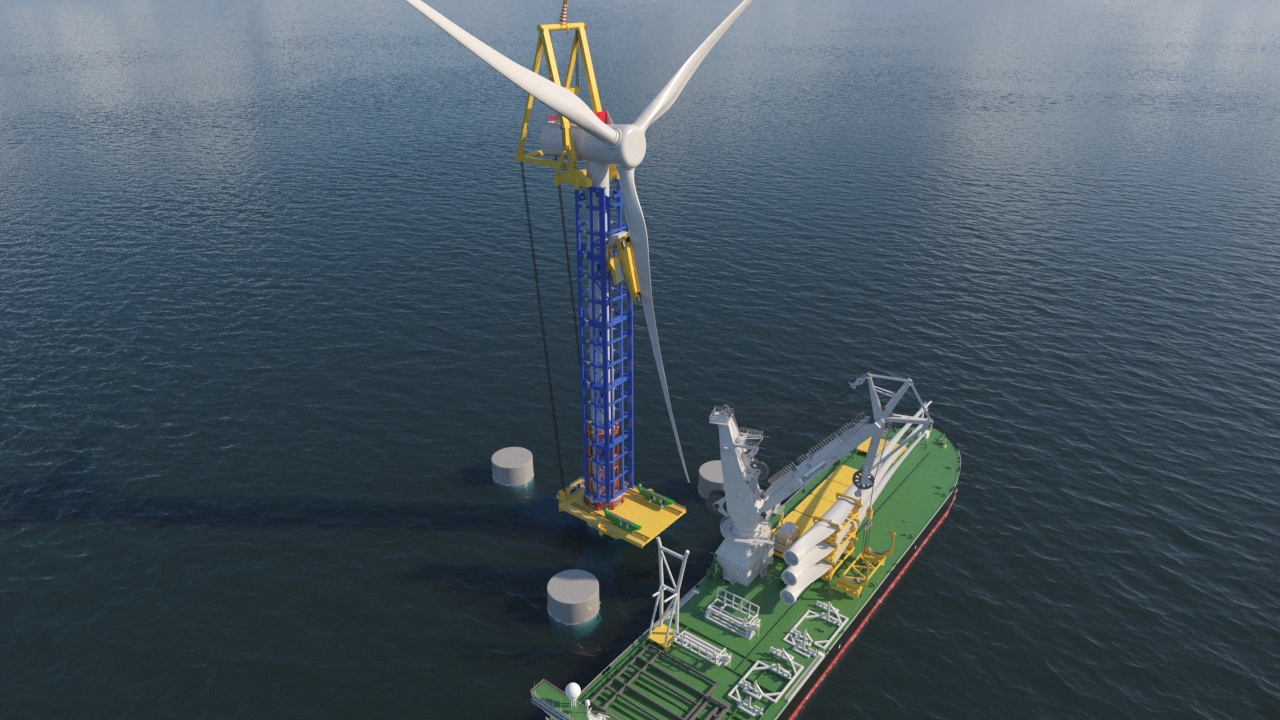RWE to produce solar power for KRONOS TITAN at Nordenham site
01.07.2025

RWE is leading technological development in the wind industry. The company is constantly exploring how innovation can make the installation and operation of its wind farms even more efficient, in order to further drive down costs. For bottom-fixed and floating offshore wind projects, the availability of specialised cranes could become a bottleneck. That is why RWE has recently signed a Letter of Intent (LoI) with WindSpider. The Norwegian based company is developing a new modular self-erecting crane system, which surrounds the wind turbine tower like the web of a spider, and can be used on land as well as at sea.
Phillipa Slater, Director Engineering of RWE Renewables said: “RWE is one of the world’s leading renewable energy companies, and we actively promote innovation across our global fleet. With our expertise and technical know-how, we are excited to explore potential collaboration with WindSpider and to further develop the concept design.”
“We are very pleased with this opportunity to collaborate with RWE. This will allow for increased momentum in the ongoing development of our technology,” said Kent Lynggaard Vinkel, CEO of WindSpider.
“We are looking forward to working for and together with RWE to bring this important innovation to the market,” added André Ølberg, CFO & CCO of WindSpider.
To improve operability and scalability for turbine installation as well as major component replacements, the WindSpider solution uses the tower of the wind turbine as part of the crane. With an effective lifting capacity of more than 1,200 metric tons and by eliminating relative motion between crane and tower, the design is well placed to be able to support the next generation of turbines. The solution also has the potential to allow maintenance of floating wind turbines and the replacement of major components at sea.
Similar to its position in bottom-fixed offshore wind, RWE is aiming to become a leader in floating wind and to have one gigawatt of the technology in operation or under construction by 2030. RWE has already secured a commercial-scale floating wind lease off the Californian coast. In addition, the company is selected as qualified bidder for two commercial floating projects off the French coast, is preparing together with its partners to participate in the Utsira Nord floating wind tender in Norway, is looking to take part in the Celtic Sea auction in the UK and is exploring floating wind in other European markets and the APAC region. To gain early experience, RWE is participating in multiple floating demonstration projects, each based on different foundation concepts. The most advanced project is the TetraSpar Demonstrator, which was commissioned off the Norwegian coast in 2021.
Pictures for media use are available at the RWE Media Centre (Credit: WindSpider)
Further information about Research & Development at RWE.